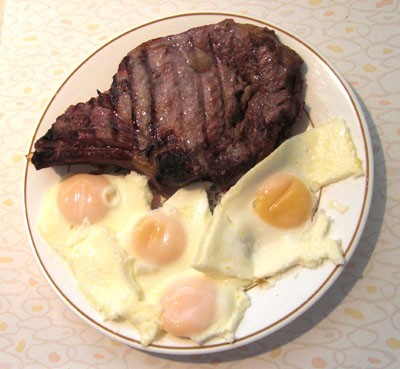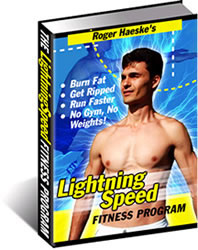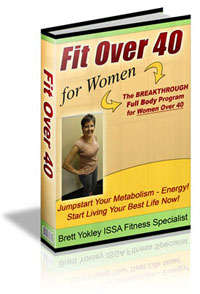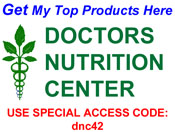Protein supplements – powders, shakes, etc. – are a favorite subject of thousands of so-called experts in nutrition and bodybuilding. They treat this food group as if it is a miracle for muscle building. The reasoning is that muscle is made out of protein, so you have to eat protein to build more muscle. This is only partly true.

All-Important Ingredients List
The key point that I’m going to make rests on the ingredients that protein supplements normally contain. To keep things simple, just consider the amount of each food group: protein, fat, carbohydrate (as sugars). This will be an eye opener if you have never read labels before.
Supplement Facts Labels of Three Protein Powders
Product 1: Serving size (34.6 g), Protein (20 g), Sugars (4 g), Total Fat (1 g)
Product 2: Serving size (29 g), Protein (24 g), Sugars (1 g), Total Fat (1 g)
Product 3: Serving size (30 g), Protein (22 g), Sugars (0 g), Total Fat (0 g)
These products all contain plenty of protein per serving. They also offer lots of fodder for me to write about regarding the folly of protein shakes as bodybuilding supplements or meal replacements. However, I just want to focus on one glaring item at the moment, which is:
Key Missing Ingredient for Muscle Building
Fat!
Why is This So Important?
Everything you eat or drink is absorbed and used better in the presence of fat. Just today a research article appeared that showed the importance of using oil-based dressings for optimizing the antioxidant benefits of spinach salad. (By the way, we chemists classify fats and oils as the same kind of food group, the only difference being whether they are solids or liquids at room temperature.)
Here is the flip side of that comment: The low-fat craze and all of the low-fat diet plans are a plague on human health. There is no way you can be healthy without substantial amounts of fat in your diet, regardless of how much you weigh. Two hundred years of clinical and scientific research backs me up on this.
How to Make Protein Work for You
The easy advice is to get some fat or oil with your protein shake. Lots of it. Also keep in mind that carbs will undermine your effort, so keep them to a minimum. The products above are just fine in that regard. Some products will contain higher amounts of sugars, sometimes as much as 10 g per serving (!), so avoid those.
Products that are artificially sweetened pose too many threats to mention, especially if they contain aspartame. Ideally, protein supplements should contain no sugars or sweeteners or flavoring at all. These are hard to find.
Recommended Types of Fat
Of all the written nonsense about fats, you only need to follow these two rules for choosing dietary fats:
1. Eat all of the fats you want if they are made by Mother Nature.
Saturated, unsaturated, polyunsaturated, plant or animal – none of this matters. Eat them all.
2. Don’t put a single molecule in your mouth if it is synthetic or processed in any way.
Trans fats or partially hydrogenated oils are obvious no-nos. Margarine and other fake butters are awful, too. Not so obvious are the vast majority of vegetable oils on the market. The worst of the worst are corn oil, canola oil, soybean oil, and cottonseed oil. If an oil is not cold-pressed, it is most likely processed by heat and clarifying agents. It is probably solvent-extracted, too.
Best Fats and Oils to Take With Protein Supplements
Flax oil (cold-pressed and kept refrigerated).
Coconut oil (solidifies below 75 degrees). Best for cooking, too.
Butter.
Fish oil (preferably from sources low on the food chain, such as krill).
CLA supplements.
The Latest Story on Eggs
Egg whites are widely acknowledged as a great source of protein. Egg yolks, on the other hand, have a Jekyll and Hyde history that is rather idiotic.
Egg yolks contain cholesterol. Dietary cholesterol is not the evil danger that the brainwashed masses (including medical doctors) believe it is. It is just part of the cholesterol myth that supports the multibillion dollar cholesterol drug industry. No judgment here – drug companies have invested billions of dollars into getting you to believe that cholesterol is a problem and that it can be solved by drugs.
More importantly, egg yolks contain a high level of a particular fatty acid, called arachidonic acid, that your body uses to make certain kinds of hormones. Some of these hormones regulate blood pressure and other cardiovascular functions. Others are highly inflammatory. Too much of them will cause a lot of pain.
The bottom line is that your basic health determines how much of the arachidonic acid from egg yolks goes into the synthesis of inflammatory, pain-causing hormones. It is not the amount of arachidonic acid that you get from egg yolks.
If you want to have a steak and four eggs for breakfast, go ahead. I do so on a regular basis.
Muscle Building vs. Fat Gain
Although this article may seem a little wordy to get the main point across, the information here is important so you can understand how to best use protein supplements for bodybuilding and for just staying lean.
If you want something simple to post on your billboard as a reminder, here are the keys to success:
1. Eat fat and/or oil with your protein shakes.
2. Avoid carbs when you have your protein drinks.
That’s it!
By the way…
The best books that I know of for showing you how to stay fit with quick, simple, at-home workouts are the Lightning Speed Fitness Program by Roger Haeske and the Fit Over 40 for Women by Brett Yokley. Roger and Brett also throw in lots of bonus books on diet, exercise, and lifestyle when you purchase their books. Click on images below for details.


.
.
.
.
.
.
.
.
.
.
.
.
.
.
.
.
.
.
.
All the best in natural health
Dr. D
